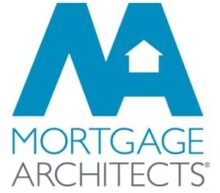Year over year perhaps the most contested issue in the mortgage market is the age old decision of choosing between fixed and variable rate mortgage. Hundreds of thousands of dollars of personal financial research dollars has been poured into making the case and giving the final decisive pearl of wisdom to consumers. What I am about to share with will be wisdom that will work in any set of market conditions, and perhaps most importantly – it will with certainly help you determine the best choice for your own personal risk tolerance and financial circumstances.
Let me first start off by saying this, anyone who tries to suggest whether you should go with a fixed or variable rate mortgage without first taking the time to understand your own long term goals, the longer term picture of you’re your cash flow, and your own individual risk tolerance is a financial professional you should be very wary of. The first thing I must tell you is that anyone who pretends to know what is going to happen with long term interest rates is either delusional or has a grossly exaggerated opinion of themselves.
At any given point in time Canada’s capital markets represent about 3% or less of global capital markets and our economy in Canada is heavily reliant on exports to our key trading partners. What this means for Canadians and Canadian mortgage consumers is that no matter how closely we watch our own economy we will always be subject to changes in our capital markets (debt and equity markets) as a result of shocks to the global system and particularly shocks to our key trading partner – the United States of America.
So what does this mean to the fixed versus variable decision – let me explain. At any given point in time there is set spread between the difference in the discounted five-year fixed rate (the most popular long-term mortgage product) and the discounted variable rate product. Depending on what is happening at any given point in time this spread increases and decreases in response to movements in the overnight lending rate set by the Bank of Canada and the Government of Canada bond market. This difference in rate represents the premium that any given mortgage consumer has to pay for the peace of mind that longer term fixed mortgage offers consumers. Conversely, the difference in savings for going variable represents the reward for taking on the extra risk of not locking in your rate and protecting you against future potentially unfavourable risk movements.
You see, in reality, the only thing a longer term fixed mortgage does is gives you is a guarantee against your rate and subsequently your payment moving for a longer period of time. In fact, it is essentially an insurance premium that insures you against interest rate risk and like all insurance premiums they change at different points in time and are more or less valuable to different market participants.
The difference between this longer term fixed rate and the variable rates rise and fall in different market conditions. Traditionally at times when inflation is high this difference is greatest where at point the difference was more than 2%. At times when inflation is extraordinarily low the difference in these two rates has been as low as less than 0.5%. Regardless of what the difference in the two rates is, the thing we know for certainty is the relative cost-benefit analysis really comes down to your own tolerance for risk and the math of how much you ultimately pay (cost) for that piece of mind, or stand to gain (save) from taking the extra risk.
Only you can ultimately gauge that decision, but if you want to do the math then it is fairly simple. All you need to do is multiply the mortgage balance you have or were considering taking between the difference in the fixed versus variable.
As an example – if you have a $100,000 mortgage and the difference between a competitive fixed rate mortgage and a variable rate mortgage is 1% then the additional premium per year for that peace of mind is $1,000 or $100,0000 x (the difference in interest rates). If you take a look at the math based on this equation and the cost seem reasonable you are likely psychologically suited for a longer term fixed mortgage. If it seems expensive to you then you are likely a good candidate for a variable rate mortgage.
Before I leave you … I will give you one final caveat. There is no amount of financial gain that ever warrants putting yourself under financial duress. When it comes to mortgage or financial decisions the wise consumer does not take on more risk than they can financially handle. The implication – if you can’t afford an upswing in rates then going variable is not a sound decision in any economy.
If you want to discuss the fixed versus variable decision and figure out how to save the most amount of money – we would be happy to help. Give our office a call at 416-410-9905
